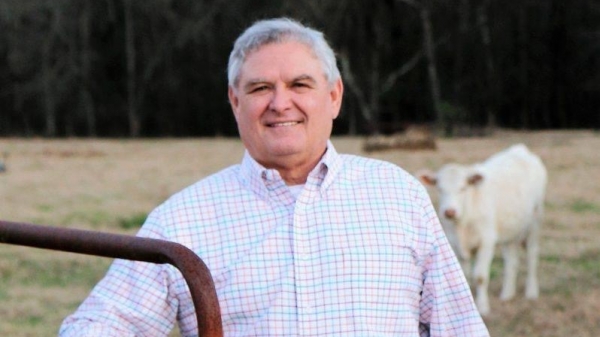By Bill Britt
Alabama Political Reporter
A most heinous and hideous crime is on the rise in Alabama.
A crime that mostly go unreported, unprosecuted and ignored by legislations and citizens.
The crime that like a cancer grows is elder abuse, it is cruel and sometimes violent and always wrong.
For years, as a state representative and now as a senator, Senator Tammy Irons (D-Florence), has fought to bring an awareness and law to this nearly silent crime.
“This is a crime we must fight it, prevent it and prosecute” says Irons.
SB262 is the bill that will do just that according to Irons.
According to Irons, the bill will create an inter-agency council. The coalition will consist of 26 agencies, governmental and non-governmental, which will work across already established agencies to combat elder abuse.
The bill has passed out to the Senate and how awaits a hearing on the floor of the House.
The bill is being carried in the House by fellow democrat, Representative Marcel Black (D-Tuscumbia).
“The abuse of the elderly is one of the last frontiers we have not addressed,” said Black.
“We have focused –and maybe not always to the extent we should–on child abuse, spousal abuse it is time we make elder abuse a priority.”
Many times a bill sponsored by the minority party has less consideration, but Irons’ relentless effort to enact this bill has been joined by powerful republicans as well as democrats. Senators Brewbaker, Keahey, Coleman, Figures, Holley, Dial, Holtzclaw and Bussman are all co-sponsors of SB262.
“I am passionate about this bill, my heart breaks for children and elderly,” said Irons. “These are two groups that cannot always help themselves.”
Irons points out that the bill It is not only designed to fight physical abuse but all forms of abuse including one of the big one–financial abuse.
In her work as an attorney, Irons says she works with many clients with estate planning needs, and has seen and helped prevent numerous cases of elderly financial abuse.
While no one knows precisely how many older Americans are being abused, neglected, or exploited most everyone agrees it is time to act. The cases reported in Alabama are in the thousands but the unreported cases could easily reach 50,000.
Irons says that many cases go unreported because the elderly victim is ashamed but she says most of the time it is because their abuser is a family member.
Black who is an attorney who has seen elder abuse concurs, “There are some that have no where to go because the people they depend on to take care of them are the very ones abusing them.”
In fact the San Diego County District Attorney’s Office has put together a profile of the number one abuser.
Paul Greenwood who prosecutes these crimes for the San Diego DA, says, “My number one perpetrator of physical elder abuse is the son living at home with his widowed mother. He is between 35 and 50. He is either a single son who has never ever left home, or a divorced son who complains that he cannot pay alimony so he comes back home. Or he has just returned from prison. In every case he is lazy and unemployed.”
As Irons and Black have pointed out the crime remains under reported out of embarrassment, fear of retaliation or concerns that the adult children or the police will try to remove the victims and put them into a nursing home.
One of the problems that Irons says has hindered law enforcement is a clear definition of elder abuse. The bill clearly points out the types of abuse that are occurring to provide those in justice with tools to arrest, prosecute and punish those who abuse older American.
According to the bill elder abuse is defined as the maltreatment of an older person, age 60 or above, by any person, including the following:
Emotional/Psychological Abuse. The intentional infliction of mental or emotional anguish by threat, humiliation, intimidation, or other verbal or non-verbal abusive conduct. Examples of psychological abuse include name calling, insulting, ignoring for extended periods of time, frightening, intimidating, and isolating from friends and family..Material Exploitation. The unauthorized use of funds or any resources of an elderly individual; the misuse of power of attorney or representative payee status for one’s own advantage or profit. Examples include stealing jewelry or other property and obtaining the elderly person’s signature for transfer of property or for a will through duress or coercion.
Neglect. The intentional or unintentional failure by the caregiver to obtain adequate goods or services for the elderly person’s maintenance and well-being. Examples include a caregiver who fails to buy groceries or prescription medications.
Physical Abuse. The intentional use of physical force that results in bodily injury, pain, or impairment. Examples of physical abuse include beating, slapping, bruising, cutting, burning, pushing or shoving, excessively restraining, force-feeding, and physical punishment.
Self-neglect. Behavior of an elderly person that threatens his or her own health or safety. Examples are failure to provide oneself with adequate food, clothing, shelter, medication, safety, and proper hygiene.
Sexual Abuse. The non-consensual sexual contact of any kind with an elderly individual. Examples include fondling of the breast or genitals, rape, coerced nudity, and sexually explicit photographing.
Almost 14 percent of Alabama population is over 65 years of age and those numbers will grow dramatically over the next decade.
“We need this bill so we can give them the protection they deserve,” said Black, “These are the people who protected us when we could not protect ourselves.”
Irons who has worked for almost six years to oversee the passage of the Alabama Interagency Council for the Prevention of Elder Abuse act, says she is hopeful that this year will be the one that see such a agency created.















































